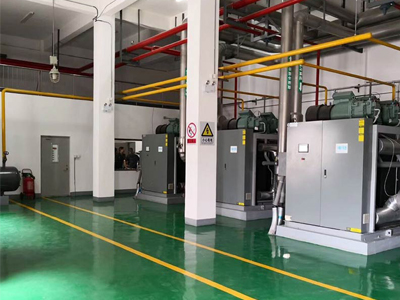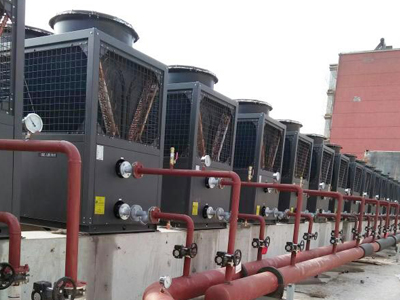Water-cooled Chillers vs Air Cooled Chillers: Which One to Choose?
Industrial processes generate a lot of heat, which must be dissipated to avoid damage to sensitive equipment and to protect the finished product. A proven method of monitoring and regulating temperatures to optimum levels involves the use of cooling systems that can be water or air cooled. This article will focus on the differences between water cooled chillers and air cooled chiller systems.
Air cooled chillers versus water cooled chillers
Although both air-cooled chillers and water-cooled chillers remove unwanted heat from the manufacturing process, they differ in many ways. Deciding which chiller is best for your industrial application depends on several factors, such as
Chiller condenser mechanism
Cost difference between water and air-cooled
Chiller capacity range
Environmental and location considerations
Air-cooled vs. water-cooled condensers
There is a clear difference between air-cooled chillers and water-cooled chillers with condensers. Air-cooled chillers are equipped with a condenser that uses ambient air to lower the temperature of the refrigerant. Fans force the air through the ducts containing the refrigerant, thus removing the heat from it. The cooling refrigerant used in the chiller can then be circulated through the industrial process to achieve the cooling effect.

In contrast, water-cooled chillers use the high heat capacity of water to promote refrigerant cooling. The typical coolant used in a water-cooled system is a mixture of water and the coolant glycol, which is circulated in a network of sealed pipes. Cooling occurs when the cooled refrigerant passes through a heat exchanger connected to the industrial process. The heated coolant is then returned to the cooling tower or refrigeration unit, removing the heat gained and preparing it for another cooling cycle.
However, these are not the only differences between air cooling and liquid cooling.
Costs
Another key factor to keep in mind when comparing air-cooled and water-cooled chillers is the cost of purchase, installation and maintenance.
Initial cost
Depending on their design and operation, air-cooled chillers may seem to offer higher face value compared to water-cooled units. Firstly, air-cooled systems are characterised by the cost of installation of ducts, fans and temperature regulation controls. Does this mean that liquid cooling is superior to air cooling? Not necessary. There are further costs to consider.
Operating costs
In addition, air-cooled chiller systems consume more energy to power the fans to facilitate their cooling effect, which translates into higher electricity bills.
On the other hand, although water-cooled chillers are less expensive to install, they usually have higher long-term operating costs as most of these chillers require the installation of cooling towers.
Maintenance costs
In addition, the operating costs of water-cooled chillers can be significantly higher when considering chiller maintenance costs such as water quality testing, mandatory water treatment and refrigeration system operating costs.
Unlike air coolers, water chillers require cooling towers, which leads to expensive maintenance requirements: condenser tube cleaning, anti-freeze, water treatment and tower mechanical maintenance. In addition, regular maintenance will help you to achieve optimum chiller safety in your workplace.
Capacity range
Is water cooling better than air cooling as far as size is concerned? Air-cooled chillers are available in sizes ranging from 7.5 - 500 tonnes. Water cooled chillers, meanwhile, have a higher cooling capacity of 10 - 4,000 tonnes.
Environment / Location
The planned location of the chiller is another key point to consider when deciding on an industrial chiller. Again, depending on the site plan, there are advantages and disadvantages to choosing an air-cooled or water-cooled chiller.
Indoor locations
Both air-cooled and water-cooled chillers can be installed indoors. However, for air-cooled chillers, additional space must be considered. This is because air-cooled chillers need access to sufficient ambient air in order to operate properly.
Placing an air-cooled chiller in a poorly ventilated indoor space will affect its cooling capacity and reduce its efficiency. In contrast, chillers can be installed in areas with minimal ventilation, as their cooling towers can be placed on the exterior of the building.
Outdoor locations
Choosing an air-cooled chiller in an outdoor environment is advantageous because of the unrestricted access to the high flow of ambient air required to facilitate coolant cooling. For this reason, water-cooled chiller systems are rarely located in outdoor locations
If you are looking to increase productivity, industrial chiller technology is an option you should consider. At Huazhao Refrigeration Equipment, we offer tailor-made industrial cooling systems to meet your company's needs. Contact us today for a bespoke energy efficient chiller solution.


Comments
0